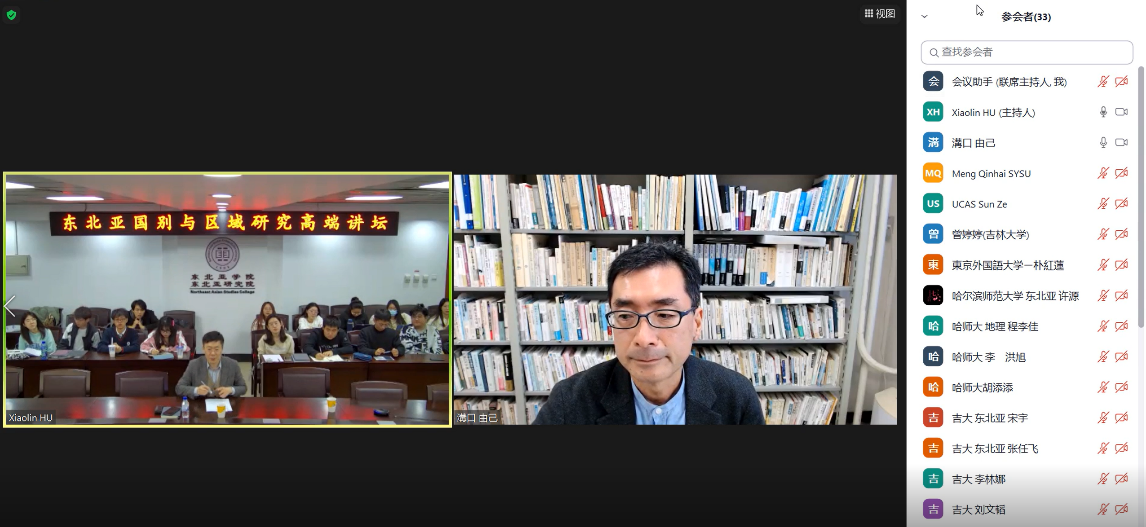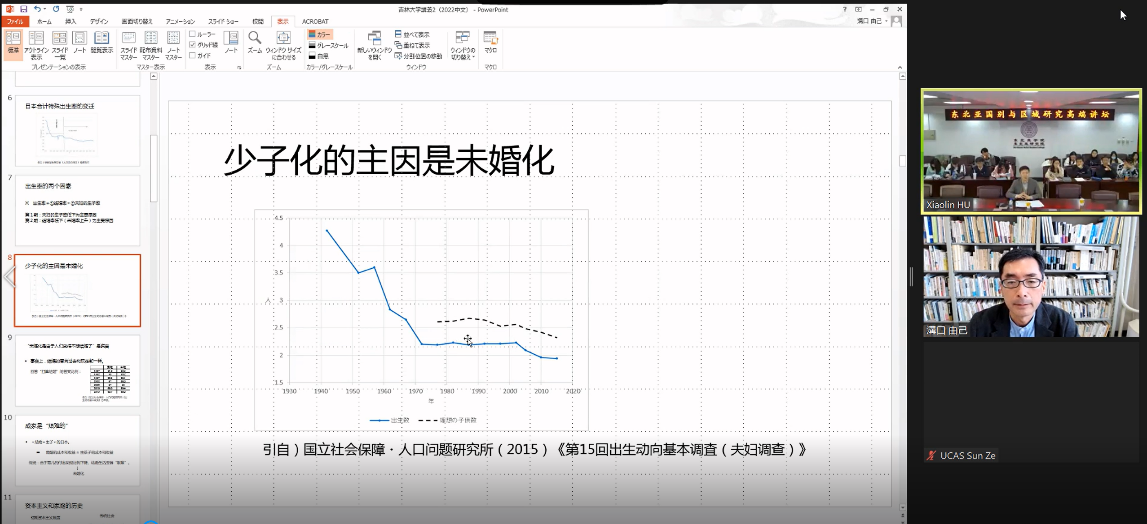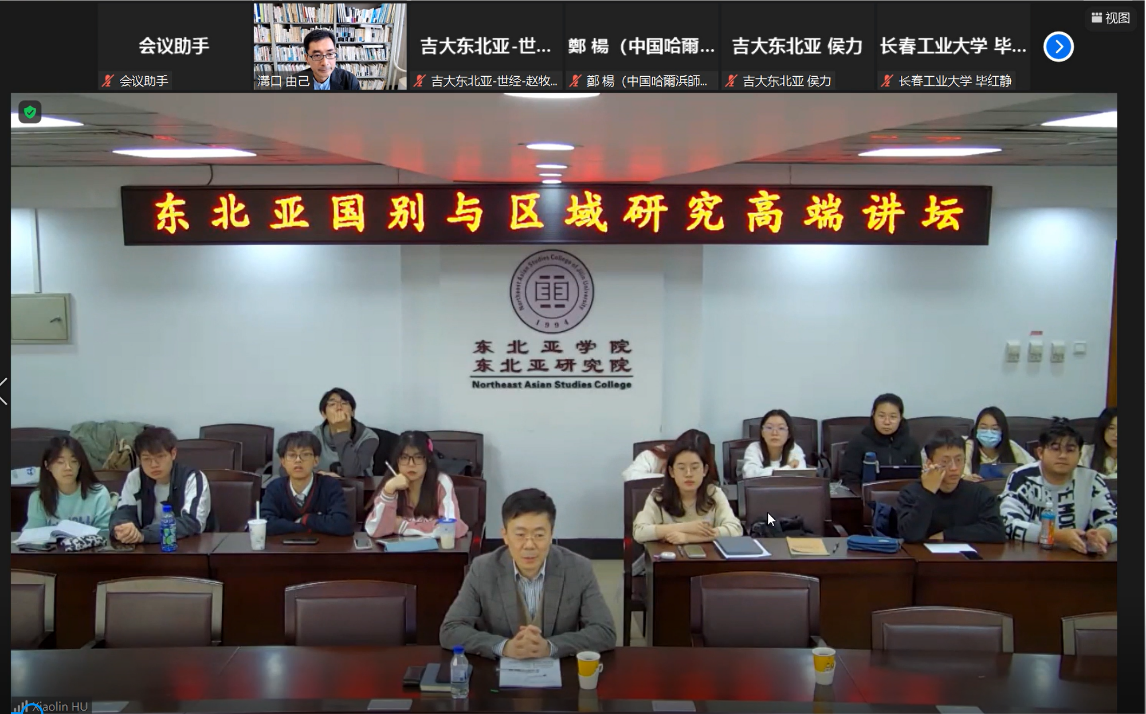Symposium on “The Reason for Sub-replacement Fertility in Japan: Family Crisis” Successfully Held
On November 22nd, 2022, the lecture on “The Reason for Sub-replacement Fertility in Japan: Family Crisis” of the High-end Symposium of Northeast Asia International and Regional Studies was smoothly held at Jilin University. The lecture was jointly organized by the Northeast Asian Research Center of Jilin University, the Northeast Asian Studies College of Jilin University, and the Special Committee for Northeast Asian Regional Studies, Academic Association for International Cultural Exchange. Professor Yuuki Mizoguchi from Faculty of Economic Sciences at Niigata University gave the keynote speech, which was presided over and translated by Associate Professor Wang Yanjun, Vice Dean of Northeast Asian Studies College of Jilin University. Undergraduates majoring in economics (especially in international and regional economics) of the college and postgraduates of relevant majors attended the activity in person or in real time online.

Professor Yuuki Mizoguchi now serves at the Faculty of Economic Sciences of Niigata University and is a member of Japan Society of Political Economy. Having graduated from Waseda University, he received a PhD in economics from Peking University. His research interests are theoretical economics and Chinese economy.
In his lecture, Professor Yuuki Mizoguchi pointed out that Japan has entered the stage of sub-replacement fertility and negative population growth, which has inflicted serious impact on Japanese economy. In his viewpoint, the reason for the first-phrase sub-replacement fertility before 1975 lies in the declining birthrate of married women while that for the second phrase after 1975 is the low marriage rate, the underlying cause of which, in turn, is the decline in the benefits of marriage and childbirth. Considering the development process of capitalism and the evolution of the Japanese family model, Professor Mizoguchi proposed that a new egalitarian family pattern that surpasses the gender difference should be constructed because with the development of capitalism, the Japanese family pattern has evolved from the traditional one to the modern one, where the work and family patterns supported by gender division of labor are not conducive to improving birthrate.

In the Q&A section, Professor Yuuki Mizoguchi also responded to the questions concerning gender differences in Japanese society and child-rearing styles in China, Japan and South Korea.
The lecture is an in-depth analysis and reflection on the phenomenon of sub-replacement fertility, a major social issue in Japan. It points out that the root cause lies in the conflict between family and work within the capitalist system and proposes that the balance between work and family should be kept to increase fertility rate, which provides a reference value for China to deal with its low fertility rate. The lecture is also one of the important activities to deepen cooperation between the college and the Faculty of Economic Sciences at Niigata University. It is agreed that various forms of academic exchange activities are to be continued.

